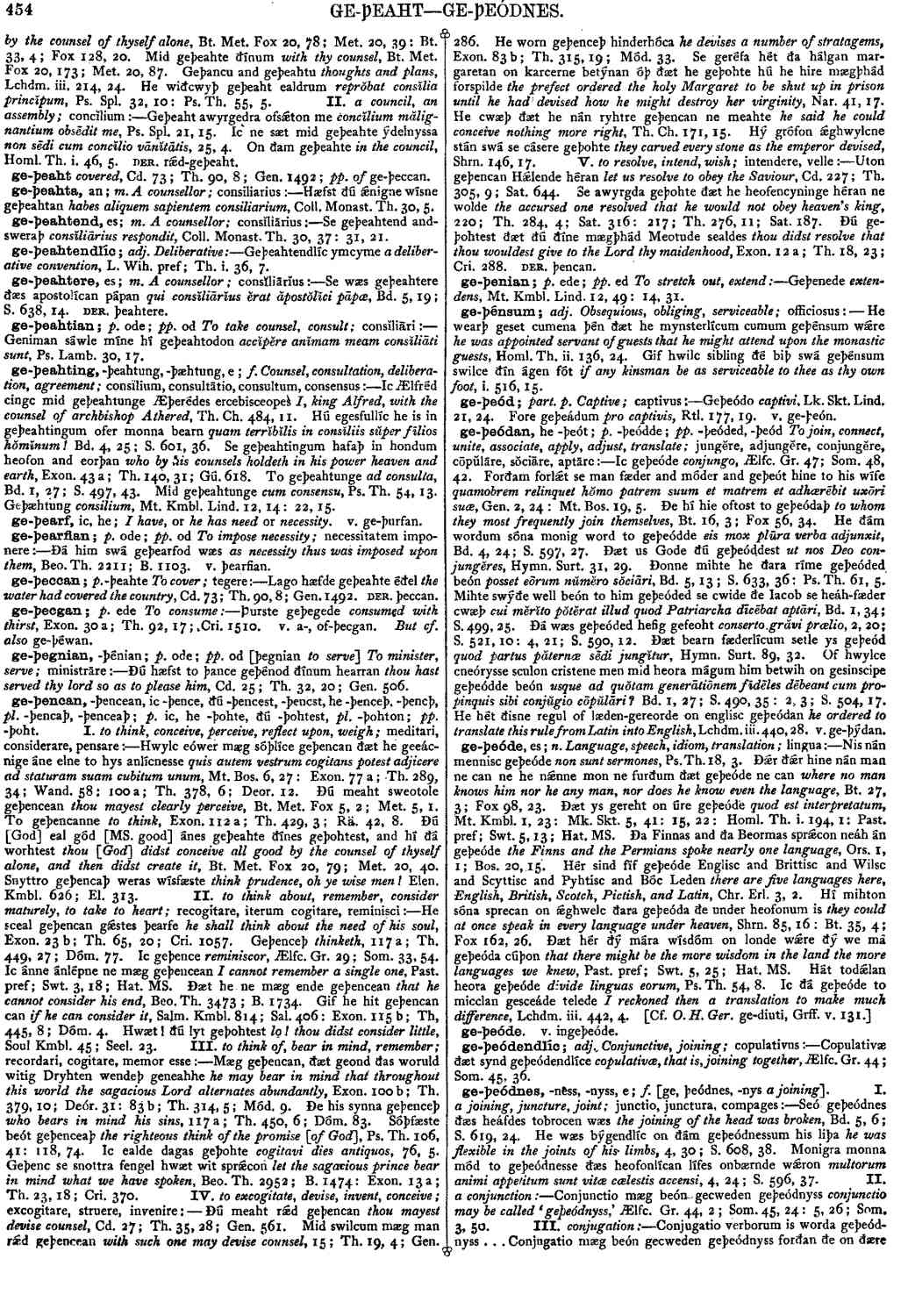ge-þeóde
- noun [ neuter ]
-
Nis nán mennisc geþeóde
non sunt sermones,
- Ps. Th. 18, 3.
-
Ðǽr ðǽr hine nán man ne can ne he nǽnne mon ne furðum ðæt geþeóde ne can
where no man knows him nor he any man, nor does he know even the language,
- Bt. 27, 3; Fox 98, 23.
-
Ðæt ys gereht on úre geþeóde quod est interpretatum, Mt. Kmbl. 1, 23: Mk. Skt. 5, 41: 15, 22: Homl. Th. i. 194, 1: Past. pref; Swt. 5, 13; Hat. MS. Ða Finnas and ða Beormas sprǽcon neáh án geþeóde
the Finns and the Permians spoke nearly one language,
- Ors. 1, 1; Bos. 20, 15.
-
Hér sind fíf geþeóde Englisc and Brittisc and Wilsc and Scyttisc and Pyhtisc and Bóc Leden
there are five languages here, English, British, Scotch, Pictish, and Latin,
- Chr. Erl. 3, 2.
-
Hí mihton sóna sprecan on ǽghwelc ðara geþeóda ðe under heofonum is
they could at once speak in every language under heaven,
- Shrn. 85, 16: Bt. 35, 4; Fox 162, 26.
-
Ðæt hér ðý mára wísdóm on londe wǽre ðý we má geþeóda cúþon that there might be the more wisdom in the land the more languages we knew, Past. pref; Swt. 5, 25; Hat. MS. Hát todǽlan heora geþeóde
divide linguas eorum,
- Ps. Th. 54, 8.
-
Ic ðá geþeóde to micclan gesceáde telede
I reckoned then a translation to make much difference,
- Lchdm. iii. 442, 4.
Bosworth, Joseph. “ge-þeóde.” In An Anglo-Saxon Dictionary Online, edited by Thomas Northcote Toller, Christ Sean, and Ondřej Tichy. Prague: Faculty of Arts, Charles University, 2014. https://bosworthtoller.com/16448.
Checked: 0